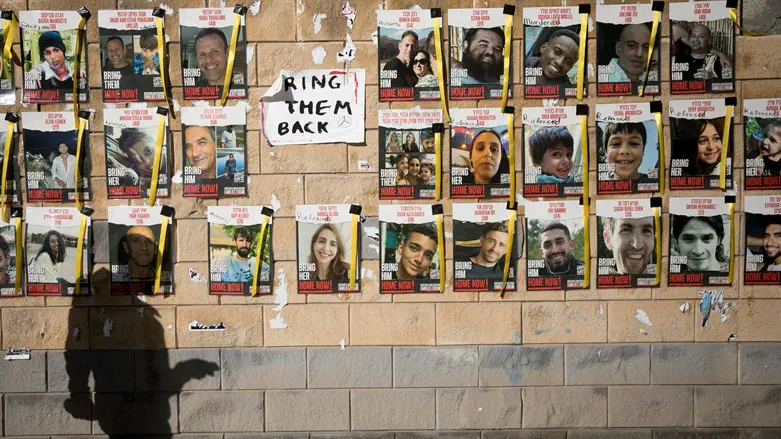
Three months have passed since the massacre of October 7th, during which over 240 people were brutally kidnapped from their homes and from a music festival in southern Israel to the Gaza Strip.
Now, ahead of marking 100 days since that horrific Saturday, the Families Headquarters is publishing a comprehensive medical report on the health risks of the hostages held captive by Hamas.
Many hostages were kidnapped from home without visual aids, hearing aids, or mobility devices, worsening their health condition and mental wellbeing. Other hostages suffer from mental health issues, and yet others were injured during the brutal kidnapping and have still not received proper treatment for injuries that could worsen and become complicated. Some of the hostages suffer from illnesses related to the harsh captivity conditions, which include physical and psychological torture.
These populations are considered populations in need of special protection and treatment under international humanitarian law, due to their increased vulnerability to severe, potentially irreversible, physical and psychological harm, which could lead to death in the worst case or require immediate medical care.
The report published contains examples of 38 hostages detailing their specific medical needs and health condition at the time of their kidnapping.
Eight Nobel Prize laureates appealed to the UN Secretary General, President of the International Red Cross, and Director of the World Health Organization, calling for the immediate release of the hostages and to take action to ensure medical care for all hostages.
In the letter, the Nobel laureates invited the three to visit Israel and the communities near Gaza to see firsthand the destruction and horrors caused by Hamas terrorists, and also to meet with families of the hostages and survivors of captivity who were released.
In their appeal, the laureates wrote: "As laureates of the Nobel Prize, we express deep concern about the hostages held in Gaza. We find ourselves compelled to speak out against the backdrop of innocent lives being held captive, families being torn asunder , and communities grappling with the harsh realities of war. We insist on speaking the voice of reason, and call you, as leaders, to take actions to promote the release of all hostages as an essential step toward truce and prevention of further bloodshed."
The medical team of the Families Headquarters compiled data on the medical background of the hostages through interviews with family members and review of medical files provided by the families. Additional information was collected from testimonies of survivors of captivity. This report focuses on the health implications for the remaining male and female hostages, the risks to their physical and mental health, and the treatment they received in captivity, as detailed in survivors' testimonies. The potential implications of these acts of violence are life-threatening.
Prof. Hagai Levine, Head of the Medical Team at the Families Headquarters, said: "All the hostages face immediate mortal danger. Some of the hostages will not survive 100 days in captivity without proper medical care, due to the conditions of captivity and neglect of their health. The hostages were abandoned on October 7th. As a nation that values life, we must not abandon hostages in the field. We must rescue them, now."
This report adds to previous reports published by the Headquarters on the health risks to the hostages, and provides new information received from survivors and families of the hostages.
"The Families Headquarters urgently calls for the immediate release of all hostages in order to protect and preserve their basic human rights, to which they are entitled, and so they can receive the vital medical and psychological treatment they desperately need to recover from the deep physical and emotional impact of the grave harm they endured. Every day in captivity endangers their lives and health. They are in critical condition and must be released now for humanitarian reasons," the Headquarters concluded.

